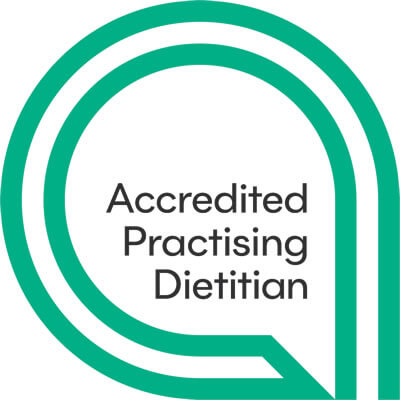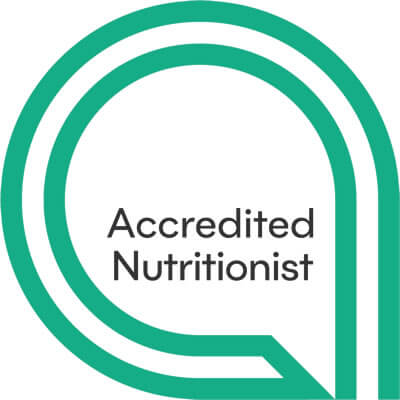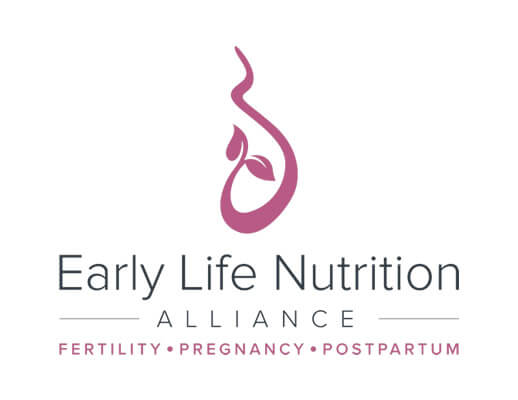What are the Benefits of Nutrition During Pregnancy?
As a qualified dietitian specialising in the crucial first 1000 days of a child's life, I've witnessed firsthand the transformative power of nutrition during pregnancy. This unique phase is more than just a time of physical growth and change; it's a golden window of opportunity where every nutritional choice you make can have a profound impact on your child's future. In our post "What are the Benefits of Nutrition During Pregnancy?", we dive into the heart of how a well-nourished pregnancy can shape your baby's health, from the womb and beyond.
Pregnancy nutrition is about fostering an optimal environment for your baby to thrive, both physically and cognitively. It's not just about eating well; it's about strategically fueling the incredible process of life taking shape inside you. From supporting crucial brain development to laying a foundation for a strong immune system, the nutrients you consume during these nine months play a pivotal role in your child's journey towards a healthy life.
Join us as we journey through the essentials of prenatal nutrition, armed with the knowledge and insights to make every meal an opportunity to nurture your child's potential. Together, we'll discover how embracing the right nutrition during pregnancy can be one of the most profound gifts you give to your baby, one that resonates far beyond these nine transformative months.
The Pivotal Role of Pregnancy Nutrition
In understanding the journey of pregnancy, it's essential to recognise that nutrition during this time is not a standalone aspect but a continuum of the first 1000 days of life - a critical period that begins at conception and extends until a child's second birthday. This continuum is where the foundations for lifelong health are laid. Nutrition during pregnancy is a vital chapter in this narrative, profoundly influencing the course of foetal development and future health outcomes.
The nutrients a mother consumes during pregnancy are the direct source of nourishment for the developing foetus, playing a decisive role in every aspect of its growth. This period is marked by rapid cellular development, organ formation, and brain growth. The quality and quantity of nutrients consumed by the mother can significantly impact these processes. For instance, folic acid is well-known for its role in preventing neural tube defects, while omega-3 fatty acids are crucial for brain development. Similarly, adequate protein intake supports overall growth, and iron is vital for the development of the baby’s blood supply and oxygen transport.
Moreover, maternal nutrition sets the stage for the child’s future health. The concept of ‘foetal programming’ suggests that the environment within the womb, influenced heavily by maternal diet, can determine the child's propensity towards certain health conditions like obesity, diabetes, and heart disease later in life. This highlights the importance of balanced and adequate nutrition during pregnancy, not just for the immediate well-being of the mother and baby, but as a proactive step towards ensuring lifelong health for the child.
As we look deeper into the role of nutrition during pregnancy, it becomes clear that every meal, every nutrient choice made by the expecting mother, is an investment in the health and future of her child.
Nutritional Benefits for Foetal Development
Nutrition is a key player in foetal development, with each nutrient making a unique contribution to the intricate process of growth and formation. Let's explore how specific nutrients affect vital developmental milestones, ensuring that the foetus gets everything it needs for optimal growth.
Brain Development: The brain begins forming early in pregnancy and continues its rapid growth throughout. Omega-3 fatty acids, particularly DHA (docosahexaenoic acid), are crucial for this process. Found in fish and fortified foods, DHA supports the development of the cerebral cortex and is vital for cognitive and visual abilities. Choline, another essential nutrient found in eggs and meat, plays a significant role in brain development and function, particularly in memory and learning processes.
Organ Formation: The formation of the heart, lungs, and other vital organs is a complex process requiring a symphony of nutrients. Folic acid, a B-vitamin prominent in leafy greens and fortified grains, is famous for its role in preventing neural tube defects and is equally crucial for overall organ development. Iron, necessary for the baby's blood supply, is vital for developing the heart and blood vessels. Vitamins A and D, along with calcium, are essential for forming strong bones and a healthy heart.
Continuation of Nutritional Benefits: Reflecting on our previous discussions on early life nutrition, it's evident that the foundation laid during pregnancy continues to influence a child's health beyond birth. The nutrients a mother consumes during pregnancy don't just support the immediate developmental needs of the foetus; they set the stage for continued growth and health in infancy and beyond. For instance, adequate iron stores at birth ensure better iron levels in the early months of life, supporting cognitive and physical development.
By highlighting these specific nutritional benefits, we can reinforce the continuity of nutrition from pregnancy to early life. It offers expecting mothers a deeper understanding of how their diet directly influences their baby's development, not just in the womb but as a continuous journey into early childhood. As we explore these crucial nutrients, we equip mothers-to-be with the knowledge to make informed dietary choices, laying a robust foundation for their baby's future health.
Long-term Implications of a Prenatal Diet
The diet of a mother during pregnancy doesn't just influence the immediate health of her developing baby; it has far-reaching implications that extend into the child's future. Numerous studies and research have established a clear link between maternal nutrition and the long-term health outcomes of the child. This connection is rooted in the concept that the nutritional environment in the womb can set the trajectory for the child's health well into adulthood.
One significant area of research in this field is the impact of maternal diet on the child's risk of developing chronic diseases later in life. For instance, adequate intake of essential nutrients can play a role in reducing the risk of obesity, diabetes, and heart conditions in children. A diet rich in fruits, vegetables, lean proteins, and whole grains, and low in processed and high-sugar foods, contributes to a healthy metabolic programming in the foetus. This early programming is crucial as it can influence the child’s metabolic responses and health outcomes in the long run.
Additionally, studies have shown that certain deficiencies or excesses in the maternal diet can predispose children to health issues like hypertension, type 2 diabetes, and even certain types of cancer. For example, excessive sugar intake during pregnancy has been linked to a higher risk of obesity and metabolic disorders in offspring.
It is important to learn about the evidence-based information on how your dietary choices during pregnancy can have a lasting impact on your child's health. By understanding these connections, you can make informed decisions that not only support a healthy pregnancy but also contribute to laying a foundation for your child's long-term well-being. This knowledge empowers you to take proactive steps in shaping a healthier future for your child.
The Lasting Impact of Maternal Nutrition on Child Health
The diet of a mother during pregnancy doesn't just influence the immediate health of her developing baby; it has far-reaching implications that extend into the child's future. Numerous studies and research have established a clear link between maternal nutrition and the long-term health outcomes of the child. This connection is rooted in the concept that the nutritional environment in the womb can set the trajectory for the child's health well into adulthood.
One significant area of research in this field is the impact of maternal diet on the child's risk of developing chronic diseases later in life. For instance, adequate intake of essential nutrients can play a role in reducing the risk of obesity, diabetes, and heart conditions in children. A diet rich in fruits, vegetables, lean proteins, and whole grains, and low in processed and high-sugar foods, contributes to a healthy metabolic programming in the foetus. This early programming is crucial as it can influence the child’s metabolic responses and health outcomes in the long run.
Additionally, studies have shown that certain deficiencies or excesses in the maternal diet can predispose children to health issues like hypertension, type 2 diabetes, and even certain types of cancer. For example, excessive sugar intake during pregnancy has been linked to a higher risk of obesity and metabolic disorders in offspring.
It is important to learn about the evidence-based information on how your dietary choices during pregnancy can have a lasting impact on your child's health. By understanding these connections, you can make informed decisions that not only support a healthy pregnancy but also contribute to laying a foundation for your child's long-term well-being. This knowledge empowers you to take proactive steps in shaping a healthier future for your child.
Linking Nutrition with Pregnancy Outcomes
The connection between nutrition and pregnancy outcomes is profound and multifaceted. Adequate nutrition plays a significant role in not only supporting the mother's health but also in ensuring positive outcomes for the baby. One of the most directly observable impacts of proper nutrition during pregnancy is a healthy birth weight. A balanced diet, rich in key nutrients, supports the appropriate growth and development of the foetus, which is a critical factor in achieving a healthy birth weight. Babies born with a weight within the normal range are less likely to encounter health issues both immediately after birth and later in life.
In addition to birth weight, the mother's diet during pregnancy can greatly influence other aspects of pregnancy outcomes. For instance, adequate intake of folic acid, iron, calcium, and other essential vitamins and minerals is known to reduce the risk of complications such as preterm birth, preeclampsia, and gestational diabetes. These conditions not only pose risks during the pregnancy and delivery but can also have long-term health implications for both the mother and child.
It's clear that a well-balanced, nutrient-rich diet is more than just beneficial—it's a crucial element for a healthy pregnancy journey. The right nutritional choices not only contribute to a healthy birth weight for the baby but also play a pivotal role in reducing the risk of pregnancy-related complications. This understanding empowers expecting mothers with the knowledge to create a nurturing environment for their babies right from the start. Embracing a diet that supports both maternal and foetal health sets the stage for a successful pregnancy and a strong foundation for the baby's future well-being.
Practical Dietary Recommendations for Pregnancy
Navigating through the myriad of dietary choices during pregnancy can be overwhelming. However, with the right information and practical tips, you can easily integrate healthy eating habits into your daily routine. This section is dedicated to offering guidance on balanced diets and highlighting the key nutrients that are especially important during pregnancy.
A balanced diet during pregnancy should include a variety of foods to ensure you're getting a broad spectrum of nutrients. Here are some key components to focus on:
- Fruits and Vegetables: Aim for a colourful array of fruits and vegetables. They are rich in vitamins, minerals, and fibre, which are essential for both you and your baby's health.
- Whole Grains: Incorporate whole grains like brown rice, whole wheat bread, and oatmeal into your diet. They provide essential B vitamins and fibre, aiding in digestion and providing sustained energy.
- Protein: Ensure adequate protein intake through lean meats, poultry, fish, eggs, and plant-based sources such as beans, lentils, and tofu. Protein is crucial for the growth and repair of tissues.
- Dairy or Alternatives: Include sources of calcium like dairy products or fortified plant-based alternatives. Calcium is vital for building your baby's bones and teeth.
- Healthy Fats: Foods rich in healthy fats, such as avocados, nuts, seeds, and olive oil, are important for your baby's brain development.
In addition to these dietary components, it's essential to maintain hydration by drinking plenty of water throughout the day.
When considering healthy eating habits, it's helpful to draw parallels with the “foods to avoid during pregnancy” article. For instance, while limiting high-mercury fish, you can choose safer fish options rich in omega-3 fatty acids. If certain foods are off-limits due to the risk of listeria, explore safe alternatives that provide similar nutritional benefits.
Remember, the goal is not perfection but balance and variety. Small, frequent meals can help manage common pregnancy symptoms like nausea and heartburn while ensuring a steady supply of nutrients. Planning meals and snacks ahead of time can also make it easier to make healthy choices.
By following these practical dietary recommendations, you can confidently navigate your pregnancy diet, ensuring you and your baby receive the necessary nutrients for a healthy pregnancy and beyond.
Overcoming Nutritional Challenges During Pregnancy
Pregnancy is often accompanied by a range of nutritional challenges, such as morning sickness and food aversions, which can make it difficult to maintain a balanced diet. Understanding and addressing these challenges are key to ensuring both you and your baby receive the necessary nutrients.
Morning Sickness: Nausea and vomiting, especially common in the first trimester, can make it hard to eat and keep food down. To combat this, try eating small, frequent meals throughout the day instead of three large ones. Opt for bland, easy-to-digest foods like toast, crackers, and rice. Keeping a few crackers by your bedside to eat before getting up can also help alleviate morning sickness.
Food Aversions and Cravings: It's not unusual to develop a sudden dislike for foods you previously enjoyed, or crave foods you normally wouldn’t eat. Listen to your body and find healthy alternatives that are appealing to you. If you have an aversion to a particular nutrient-rich food, look for other sources of those nutrients. For example, if you can’t stand the taste of meat, consider plant-based protein sources like lentils, chickpeas, or tofu.
Staying Hydrated: Sometimes, water can seem unappealing during pregnancy, but staying hydrated is crucial. If you're finding it hard to drink plain water, try adding a slice of lemon or cucumber for flavour, or switch to herbal teas and broths.
Managing Heartburn and Indigestion: These common pregnancy symptoms can make eating uncomfortable. To alleviate them, avoid spicy, acidic, or greasy foods, and don't lie down immediately after eating. Eating smaller, more frequent meals can also help.
Balanced Diet: Despite these challenges, strive to maintain a balanced diet. Focus on including a variety of fruits, vegetables, whole grains, protein, and dairy or alternatives in your meals. If you find it difficult to eat certain foods, prenatal vitamins can help fill nutritional gaps.
Remember, every pregnancy is unique, and what works for one person may not work for another. Don’t hesitate to reach out to a healthcare provider or a dietitian if you’re struggling with nutritional challenges during pregnancy. They can provide personalised advice and solutions to ensure you’re getting the nutrition you need for a healthy pregnancy.
What are the Benefits of Nutrition During Pregnancy?
As we wrap up on the benefits of nutrition during pregnancy, it's clear that the foods you choose during these nine months carry immense significance. They not only support your health and well-being but also play a pivotal role in laying a strong foundation for your child's future. This journey of pregnancy nutrition is a critical chapter in the story of the first 1000 days of your child's life, where every meal contributes to their growth, development, and long-term health.
We've seen how a balanced diet, rich in essential nutrients, can positively influence foetal development, from brain growth to organ formation. We've also explored the long-term implications of maternal nutrition, understanding how it can reduce the risk of chronic diseases in children and ensure positive pregnancy outcomes. Moreover, practical dietary recommendations and solutions to common nutritional challenges during pregnancy provide a roadmap for navigating this crucial period.
Remember, your nutritional choices during pregnancy are powerful tools that shape not just your baby's health but their entire future. We encourage you to revisit our previous articles on early life nutrition and preconception nutrition for a more comprehensive understanding of this vital journey.
Start your Journey Right
To all expecting mothers, let this knowledge empower and inspire you. You have the ability to make a profound impact on your child's life, starting from the very first day. Embrace this journey with confidence, knowing that each healthy choice you make is a step towards a thriving future for your little one.








